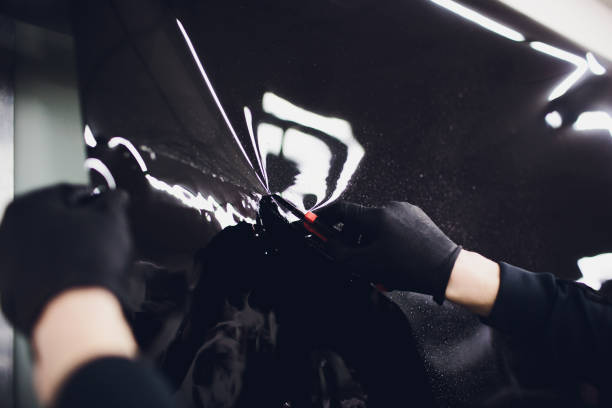Whether you’re looking to enhance the aesthetics of your ride, increase privacy, or protect yourself and your passengers from harmful UV rays, car window tinting Bristol is a popular choice for many vehicle owners. However, before you dive into the world of window tinting, there are several crucial factors to consider. This comprehensive guide will walk you through everything you need to know about car window tinting.
What is Car Window Tinting?
Car window tinting involves applying a thin, transparent film to the interior side of your vehicle’s windows. This film is composed of layers of polyester and other materials that are designed to block or reduce the amount of sunlight entering the vehicle. Window tinting not only adds a sleek and stylish look to your car but also provides numerous functional benefits.
Benefits of Car Window Tinting
- UV Protection: One of the primary benefits of window tinting Bristol is its ability to block harmful UV rays. This not only helps protect your skin from sun damage but also prevents your car’s interior from fading and deteriorating over time.
- Heat Reduction: Tinted windows can significantly reduce the amount of heat that enters your car, keeping the interior cooler and more comfortable, especially during hot summer months.
- Privacy: Window tint offers increased privacy by making it difficult for outsiders to see into your vehicle. This added privacy can deter theft and enhance the security of your belongings.
- Glare Reduction: Tinted windows reduce glare from sunlight and headlights, improving visibility and reducing eye strain while driving.
Types of Window Tinting
There are various types of window tint films available, each offering different levels of tint darkness, heat rejection, and UV protection. Some of the most common types include:
- Dyed Film: Provides a basic level of tint and UV protection.
- Metalized Film: Offers increased heat rejection and durability but may interfere with electronic signals.
- Carbon Film: Provides superior heat rejection without interfering with electronic signals.
- Ceramic Film: Offers the highest level of heat rejection and UV protection while maintaining visibility and clarity.
Legal Considerations
Before tinting your car windows, it’s essential to familiarize yourself with local regulations regarding window tinting. These regulations typically specify the allowable tint darkness levels for different windows of the vehicle to ensure visibility and safety for both drivers and law enforcement.
Professional Installation
While DIY window tinting kits are available, professional installation is recommended for best results. Experienced professionals have the expertise and tools necessary to properly apply the tinting film, ensuring a seamless finish and optimal performance.
Maintenance
To maintain the appearance and effectiveness of your window tint, it’s essential to follow proper maintenance practices. Avoid using abrasive cleaners or tools that could damage the tint film, and regularly clean your windows with a soft cloth and mild detergent.
By understanding the benefits, types, legal considerations, and maintenance requirements of car window tint, you can make an informed decision about whether it’s the right choice for your vehicle. Whether you prioritize style, functionality, or both, window tint offers a multitude of advantages for any car owner.
